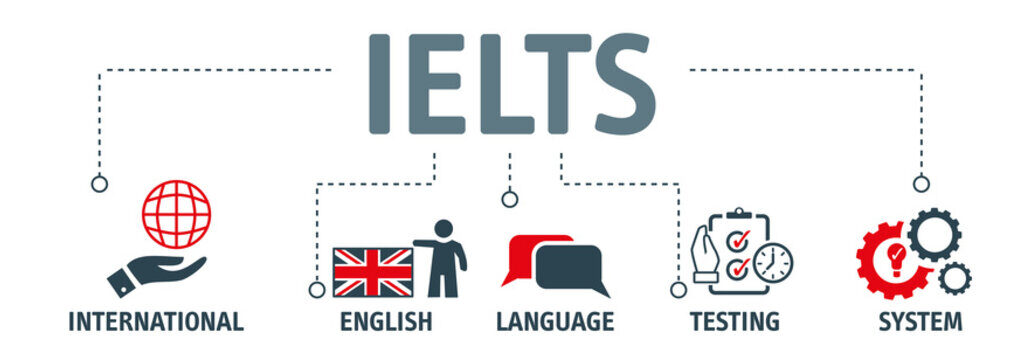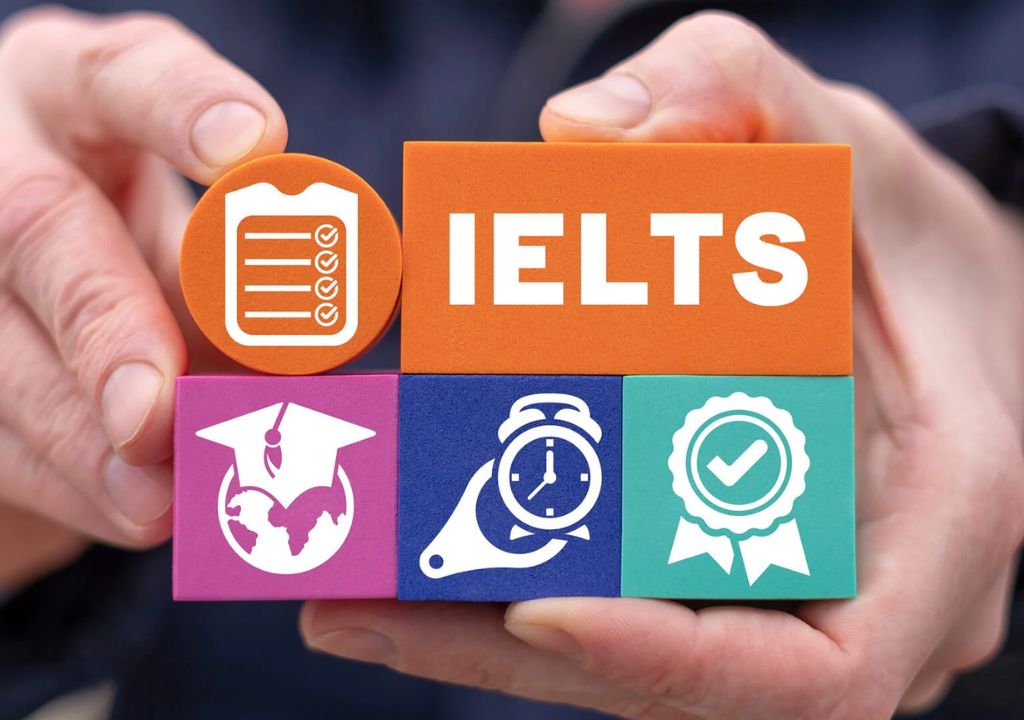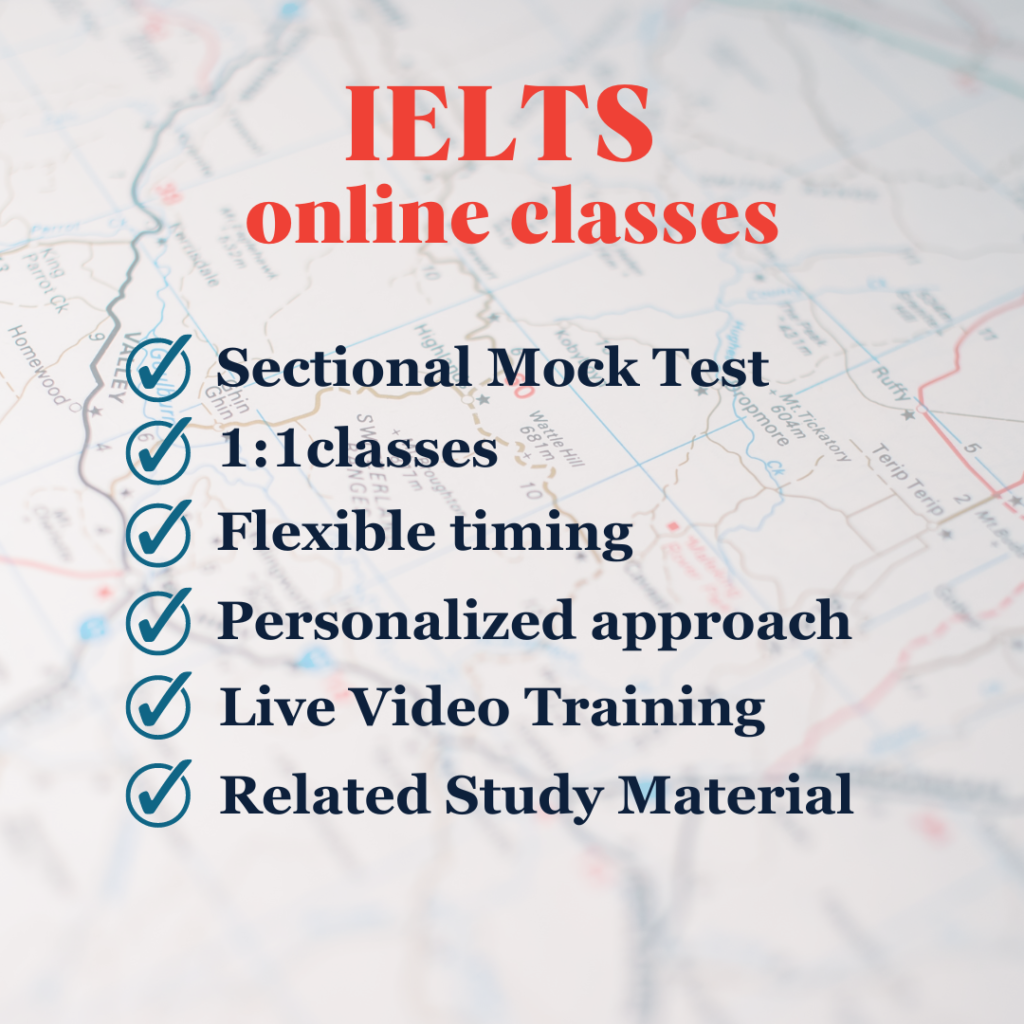
What is IELTS?
IELTS, the International English Language Testing System, is a globally recognized English language test trusted by governments, employers, and universities worldwide.
It assesses a test taker’s proficiency in four language skills: Listening, Reading, Writing, and Speaking. The test consists of two modules: Academic and General Training. Both modules include the same Speaking and Listening tests, but differ in the Reading and Writing tests.
The Academic module is suitable for those pursuing higher education or professional registration, while the General Training module is for migration purposes or training below degree level. IELTS is offered in both paper-based and computer-delivered formats, with the Speaking test conducted face-to-face. Test takers must complete tasks like multiple choice, identifying information, short-answer questions, and writing tasks based on visual information or arguments.
It is known for its focus on human conversations and practical communication abilities, making it a preferred choice for many test takers.
Purpose of the IELTS Exam
IELTS scores assess an individual’s ability to communicate in English effectively. IELTS facilitates international mobility and communication across diverse contexts.
- Study:
Countless esteemed universities and colleges across the globe acknowledge IELTS results as validation of one’s English language proficiency.
- Work:
Various professional registration bodies, spanning fields such as accounting, engineering, law, medicine, nursing, pharmacy, and education, recognise IELTS scores. This underscores the necessity of undertaking the IELTS to obtain professional accreditation in English-speaking nations.
- Migrate:
Many governments prioritise IELTS scores over other English language assessments for permanent residency applications. The IELTS General Training test is the only non-academic examination accepted for migration to English-speaking countries like Australia, New Zealand, Canada, the UK, and the USA.

Different Types of IELTS Tests
The test is available in two main formats: Academic, for those seeking higher education opportunities, and General Training, which focuses on practical language skills for work and migration purposes.
IELTS Academic
IELTS Academic evaluates your English language proficiency and determines its suitability for an academic setting. This test assesses your grasp of academic language and determines if you are adequately prepared to commence training or studying in English.
IELTS General Training
IELTS General Training measures your English language skills in practical, everyday scenarios. This test includes workplace and social situations, comprehensively evaluating your language abilities in real-life contexts.

How does the IELTS Test Work?
The IELTS test assesses your English language proficiency in four skill sets: Listening, Reading, Writing and Speaking.
- Listening Module: This segment assesses your capacity to understand concepts, recognize viewpoints, and follow the development of an argument. The testing period lasts approximately 30 minutes. Throughout the test, candidates will listen to four recordings. Each recording is played only once, and candidates will have time to read the questions before each section commences.
- Reading Module: This portion assesses your capability to grasp the general meaning, main ideas, and specific details of a text. It also examines your understanding of the author’s implications and viewpoints. Although the format of the IELTS reading test is similar for both Academic and General Training, the content of the texts and tasks varies.
- Writing Module: This segment evaluates your ability to structure ideas, craft coherent responses, and utilize a varied vocabulary and grammar with precision and accuracy. The IELTS Academic Writing test addresses topics suitable for undergraduate and postgraduate students, while the General Training module includes passages on familiar topics sourced from books, magazines, notices, company handbooks, and guidelines.
- Speaking Module: This segment assesses your proficiency in effectively communicating opinions and information on everyday topics and common experiences. It comprises three tasks and typically lasts for about 11-14 minutes. Through the speaking test, the examiner evaluates the candidate’s performance based on four criteria: fluency and coherence, lexical resource, grammatical range, and pronunciation
IELTS Test Modes of Delivery
You can appear for the test in two ways –
Pen and paper-based and
IELTS on Computer.
Let’s discuss these in details.
Pen and paper-based test
The Pen and Paper-based IELTS test follows the traditional format, requiring candidates to complete the Listening, Reading, and Writing sections using physical test booklets and answer sheets. The Speaking test is conducted face-to-face with an examiner. In this format, candidates are provided with question booklets and answer sheets for each section. It’s essential to manage time effectively to complete the test within the allocated time frame. This format offers a familiar testing environment for many candidates, allowing them to focus solely on their responses without any digital distractions.
IELTS on Computer
The Computer-delivered IELTS exam offers an alternative to the traditional paper-based test, enabling candidates to complete the listening, reading, and writing sections on a computer from the comfort of their home or any location with an internet connection. However, the speaking test remains conducted in person with an examiner to ensure accurate assessment. One of the key advantages of the computer-delivered format is the expedited results, along with the flexibility of choosing test dates and the intuitive user interface. This format caters to the evolving needs of test-takers by providing a convenient and efficient testing experience.
Your path to IELTS Excellence Begins Now
Welcome to our comprehensive IELTS preparation program, where we offer both One on One and Group Classes to suit your individual preferences and learning style. At our company, we understand that each student has unique needs and goals, which is why we provide flexible options tailored to meet your specific requirements.
We OFFER online IELTS preperation

Welcome to our tailored One on One IELTS training classes, where we provide personalized guidance and support to help you achieve your desired score with confidence. In our One on One sessions, you’ll work closely with experienced instructors who are dedicated to your success. Through a combination of expert guidance, comprehensive study materials, and customized lesson plans, we create a learning environment that is conducive to your unique learning style and pace.
With our One on One IELTS training classes, you’ll benefit from:
=> Personalized Attention
=> Customized Curriculum
=> Flexible Scheduling
=> Targeted Preparation
=> Confidence Building
Our dynamic Group Classes for IELTS preparation, conducted live to bring together learners like you who are aspiring to excel in the IELTS exam. Our sessions offer a collaborative and engaging environment where you can benefit from the collective wisdom In our Group Classes, you’ll embark on a comprehensive journey through the intricacies of the IELTS exam, through interactive discussions, practical exercises, and real-time feedback.
Here’s what you can expect from our Group Classes:
=> Shared Learning Experience
=> Expert Instruction
=> Peer Interaction
=> Structured Curriculum
=> Convenient Schedule

Top Countries Where IELTS is Accepted
Canada
IELTS is widely favored in Canada, with numerous universities recognizing its validity. A score of 6 or higher on the IELTS for Canada, graded on a scale of 0 to 9, is typically required. This benchmark ensures individuals possess sufficient English language proficiency to thrive in Canadian contexts, both academically and professionally.
USA
Recognised and accepted by the CELTA (Cambridge ESOL Examinations), IELTS is acknowledged by over 3,000 + universities and employers in the US. To study in the USA, meeting a minimum band score of 6.5 is required on IELTS for USA.
UK
The UKVI is a part of the Home Office in the UK that manages the immigration processes to the UK. To pursue studies in the UK as an international student, you must take the IELTS for UK Academic test and attain a minimum overall score of 6. This test must be taken within two years of applying for your visa.
Dubai
Dubai also accepts IELTS test results with a band requirement typically ranging from 5.5 to 6. This facilitates individuals aiming to pursue education, employment, or immigration opportunities in Dubai, as they can demonstrate their English language proficiency through the IELTS examination. In addition to Dubai, numerous other countries around the world recognize IELTS scores as evidence of language proficiency for various purposes.
Australia
A good IELTS band score can significantly benefit your Australian study visa application and enhance your prospects for admission to universities and various job positions. Achieving an overall band score of 6 or higher in each of the four skills is important to meet the minimum requirement of IELTS for Australia.
New Zealand
New Zealand is a popular study destination for international students, and one of the requirements for admission to most universities and colleges is a minimum overall band score of 6.0 or above in IELTS for New Zealand.
Ireland
Ireland has earned widespread recognition as an appealing destination for international students seeking opportunities to study, work, and live abroad. As part of the admission process for universities and employment opportunities in Ireland, all applicants must achieve a minimum overall band score of 6 in IELTS for Ireland.
European Countries
Several European countries accept IELTS test results as evidence of English language proficiency. Notable among these are the United Kingdom, Germany, France, Italy, and Spain. Individuals aspiring to study, work, or immigrate to these countries can utilize their IELTS scores to meet language requirements. The recognition of IELTS underscores its status as a globally respected language assessment tool, facilitating access to educational and professional opportunities in diverse European contexts.


